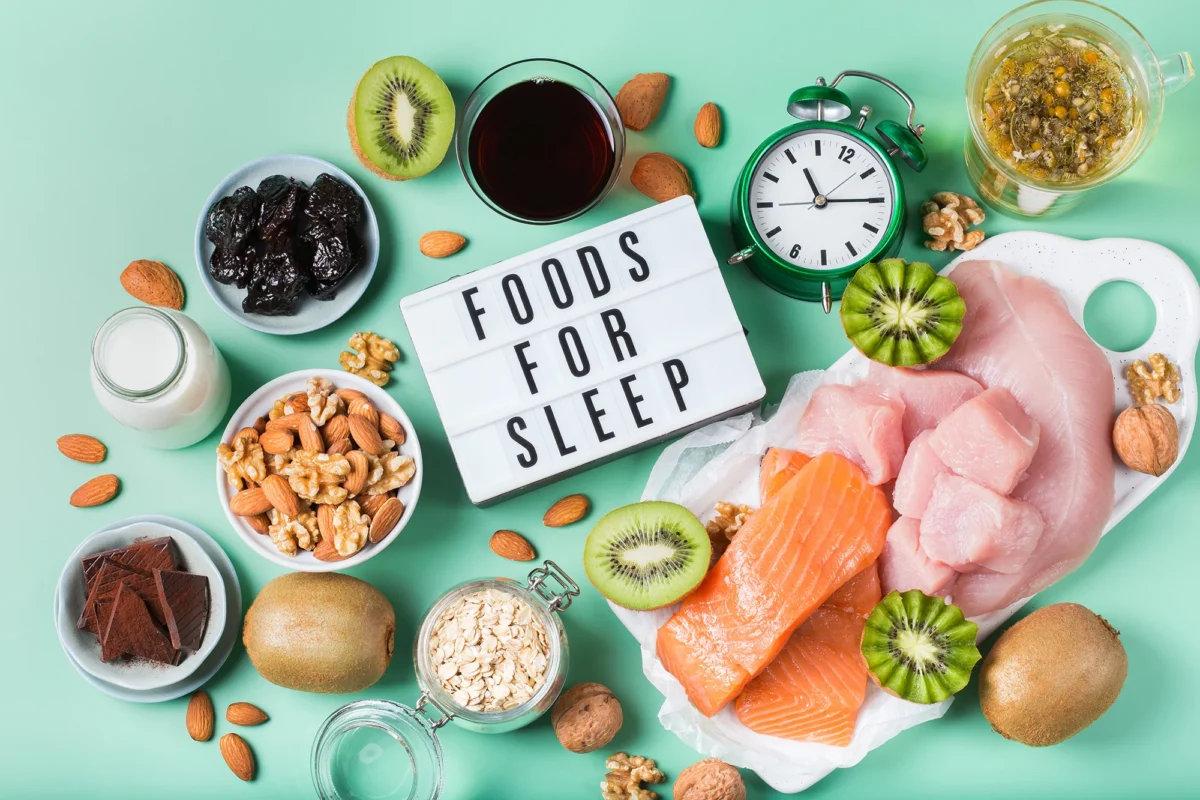
In our quest for restful nights, the role of nutrients often gets overshadowed by other factors like stress management and sleep environment. However, the connection between nutrition and the quality of our nightly rest is both profound and essential. This blog post delves into the significance of nutrients for achieving restorative sleep, offering insights and practical advice for enhancing your well-being through dietary choices.
The Basics of Nutrients and Sleep
Nutrients play a pivotal role in our overall health, impacting everything from energy levels to cognitive function. When it comes to nighttime sleep, the right nutrients can help regulate the body’s internal clock, or circadian rhythm, and promote the onset of restfulness. They are involved in the synthesis of neurotransmitters, such as serotonin and melatonin, which are crucial for regulating our sleep-wake cycles. Without adequate nutrition, our bodies may struggle to produce these essential chemicals, leading to difficulties in falling and staying asleep. Thus, understanding the relationship between what we eat and how well we rest is the first step toward improving our nightly routines.
Key Nutrients for a Good Night’s Rest
Several key nutrients have been identified as particularly beneficial for promoting sleep. Magnesium, for instance, plays a role in relaxing muscles and calming the nervous system, making it easier to fall into a restful state. Calcium helps the brain use tryptophan to manufacture melatonin, a hormone that signals the body it’s time for sleep. Vitamin D is linked to the amount and quality of sleep we get, possibly due to its effect on the production of serotonin. Omega-3 fatty acids, found in fish, have been shown to improve the quality of sleep by regulating serotonin synthesis. Integrating these nutrients into your diet can be a game-changer for your nightly routine. For all of these nutrients combined you should explore LUV health.
How Nutrients Impact Sleep Quality

The consumption of certain nutrients directly influences the quality of our nightly sleep. For example, antioxidants found in fruits and vegetables can protect against cellular stress and inflammation, potentially leading to more sleep. B vitamins are essential for the regulation of melatonin, a hormone that plays a significant role in sleep patterns. A lack of these vitamins can lead to disturbed sleep. Furthermore, amino acids like tryptophan are precursors to serotonin, which is then converted into melatonin. This process illustrates the intricate way in which nutrients support the body’s natural rest-wake cycle and highlights the importance of a balanced diet for optimal rest quality.
Nutritional Deficiencies and Sleep Disorders
Nutritional deficiencies can have a significant impact on sleep patterns, leading to disorders and disturbances. Insufficient intake of magnesium and calcium, for example, can cause restlessness and difficulty in achieving deep sleep. Low levels of omega-3 fatty acids have been linked with sleep apnea, a disorder characterized by interrupted breathing during sleep. Vitamin D deficiency has been associated with shorter sleep duration and poorer rest quality. These examples underscore the critical role that nutrition plays in preventing and managing rest disorders, emphasizing the need for a nutrient-rich diet to support healthy sleeping patterns.

Improving Sleep Through Dietary Changes
Adapting your diet to include more nutrient-rich foods is a natural and effective way to improve your rest. Incorporating foods high in magnesium, such as leafy greens, nuts, and seeds, can enhance the quality of your sleep. Dairy products, fortified cereals, and fatty fish are excellent sources of vitamin D and calcium, supporting the production of melatonin. To increase your intake of omega-3 fatty acids, consider adding more fish, chia seeds, and walnuts to your meals. These dietary adjustments can have a profound impact on your sleep quality, helping you achieve more sleep.








